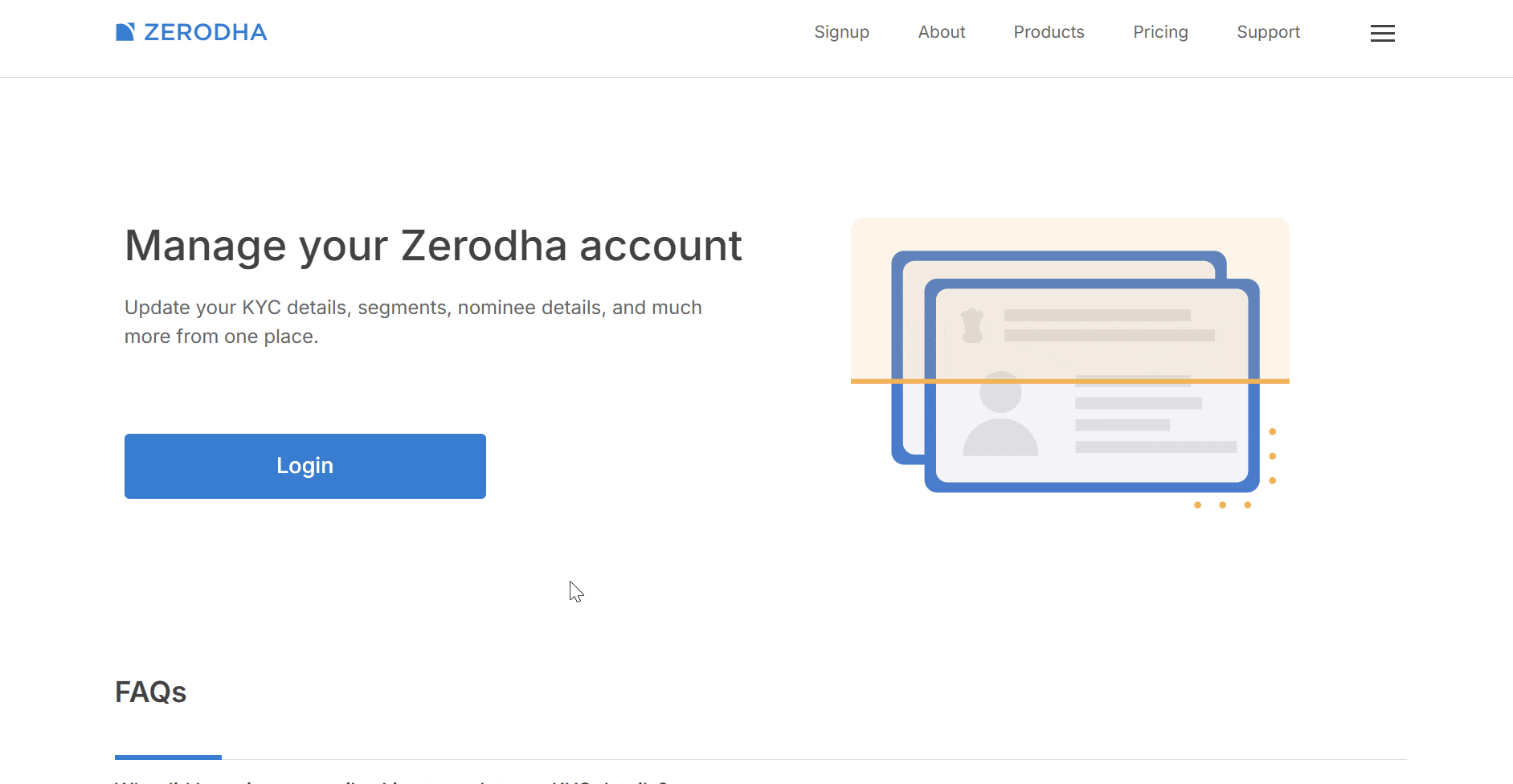As per NSE (PDF) and BSE (WEB) circulars, the exchanges consider your account inactive when you have no trading activity for 24 consecutive months. Zerodha then marks your account for Rekyc as part of additional due diligence. Placing IPO or corporate action orders does not prevent your account from being marked dormant.
Reactivation process
- Visit account.zerodha.com/account.
- Click on Login and log in to Kite.
-
Click on
Complete Rekyc.
- Select the segments you want to activate and click on Continue.
- Update your contact details if required and click on Continue.
- Update your profile details, including your annual income, and click on Continue.
- Update your address if required and click on Continue.
- Update your bank account if required and click on Continue.
- Complete the FATCA declaration and click on Continue.
- Upload income proof to trade in F&O (optional)¹.
- Update the FATCA² declaration and click on Continue.
- Complete the In-Person Verification (IPV) ³.

Things to keep in mind
- Your account will be reactivated within 48 hours of completing these steps. However, the exchange may take additional time to enable the segments once Zerodha approves your request.
- You can change your address online only if you have linked your mobile number to your Aadhaar. If your mobile number is not linked, follow the offline process for changing the registered address. For NRI or non-individual accounts, courier the required documents to Zerodha to update your address before proceeding with online reactivation.
- Your dormant account will continue to receive cash and stock dividends. However, you must reactivate your account by verifying your KYC details to participate in buybacks, OFS, rights issues, and similar corporate actions.
Notes
¹NRIs are mandated to submit income proof while opening an account due to their classification as Clients of Special Category (CSC). Income proof for resident individual accounts can be any of the following:
- A bank statement with the bank logo and seal in the name of the Zerodha account holder for the last 6 months with an average balance of more than ₹10,000.
- The latest salary slip with gross monthly income exceeding ₹15,000.
- ITR acknowledgement with gross annual income exceeding ₹1,20,000.
- Form 16 with gross annual income exceeding ₹1,20,000.
- Certificate of net worth of more than ₹10,00,000.
- Latest statement of demat holdings with current holdings value exceeding ₹10,000. (Your holdings must not be pledged)
- Latest Fixed Deposit (FD) receipt with a deposit amount exceeding ₹1,00,000.
²Non-individuals can fill out FATCA declaration fields like city of birth, mother's name, father's name, and marital status as NA.
³For non-individual account holders, the authorised signatory must complete the IPV. For joint accounts, the primary account holder must complete the IPV.






